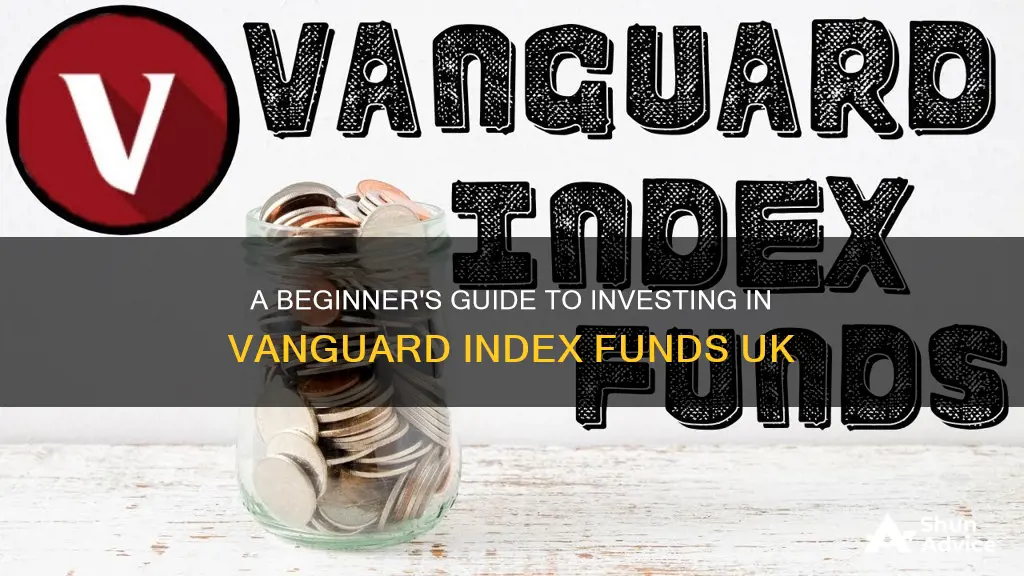
Vanguard is a popular choice for investors due to its low fees and high-quality offerings. The company offers a wide range of investment options, including roughly 200 mutual funds in the US, giving investors access to the whole market in a single investment. Vanguard's index funds are passive funds that aim to mirror the performance of a chosen stock market index, such as the FTSE 100 or S&P 500.
Vanguard's platform, Vanguard Investor, allows investors to purchase and manage a portfolio of Vanguard funds directly, without the need for a third-party broker or financial advisor. The platform is suited to DIY investors who are confident in making their own investment decisions and offers a range of products, including Stocks and Shares ISAs, general investment accounts, Junior ISAs, and SIPPs.
When investing in Vanguard index funds, it is important to consider factors such as company size and capitalization, geography, business sector or industry, and asset type. Additionally, investors should be aware of the fees associated with the platform and the funds, including platform fees, fund charges, and management fees.
Vanguard's low-cost investment options and diverse range of funds make it a popular choice for those looking to build their wealth over the long term.
| Characteristics | Values |
|---|---|
| Annual account fee | 0.15% on investments up to £250,000, capped at £375 a year |
| Ongoing fund charges | 0.06% to 0.78% |
| Entry charges | 0.20% to 0.80% |
| Management fee | 0.30% |
| Interest rate on cash balances | 2.45% |
| Minimum investment | £500 |
| Number of funds | 86 |
| Number of equity index tracker funds | 31 |
What You'll Learn

Vanguard's low fees
Vanguard's low-cost approach is reflected in its account fees, which are just 0.15% and capped at £375 a year. There are also no trading commissions when buying and selling Vanguard low-cost mutual funds or ETFs online. While some Vanguard mutual funds do charge fees, these are designed to cover high transaction costs and discourage short-term trading.
The benefits of Vanguard's low fees are clear: the less you pay for your funds, the more you keep in your pocket. This means that you can retain more of your returns and potentially see greater overall profit.
Baron Funds: A Guide to Investing in Their Success
You may want to see also

The performance of Vanguard's Lifestrategy funds
The Vanguard LifeStrategy Funds are designed to help investors manage risk while growing their savings. The funds are professionally managed to maintain a specific asset allocation, freeing investors from the hassle of ongoing rebalancing. The average Vanguard LifeStrategy Fund expense ratio is 78% less than the industry average.
There are four types of Vanguard LifeStrategy Funds:
- LifeStrategy Income Fund: This fund is suitable for investors who prioritise current income over long-term growth and are willing to accept limited growth potential with less exposure to stock market risk. The fund's investment time horizon is 3 to 5 years, with a target allocation of 20% stocks and 80% bonds.
- LifeStrategy Conservative Growth Fund: This fund targets investors who seek current income and have a longer investment time horizon of more than 5 years. It offers a balance between current income and growth potential while reducing exposure to stock market risk. The target allocation is 40% stocks and 60% bonds.
- LifeStrategy Moderate Growth Fund: This fund is designed for investors who prioritise long-term growth over current income. It offers more growth potential but also entails higher exposure to stock market risk. The investment time horizon is more than 5 years, with a target allocation of 60% stocks and 40% bonds.
- LifeStrategy Growth Fund: This fund is for investors seeking long-term growth and are comfortable with significant exposure to stock market risk to achieve higher growth potential. The investment time horizon is more than 5 years, with a target allocation of 80% stocks and 20% bonds.
The performance of the Vanguard LifeStrategy 80% Equity Fund A Acc is also worth noting. As of August 21, 2024, this fund had a 1-year change of +17.35%.
Vanguard's LifeStrategy funds provide investors with a ready-made portfolio that offers effort-free access to world markets. These funds aim to lower risk through diversification by investing in thousands of U.S. and international stocks and bonds across major market sectors and segments.
Alternative Investment Funds: A Guide to Investing in India
You may want to see also

How Vanguard compares to other investment platforms
Vanguard is a well-known investment platform with a loyal following, particularly among investors looking for inexpensive index funds for long-term investing. It is a good choice for those seeking a simple, low-cost, and diversified investment platform. However, compared to other investment platforms, Vanguard has certain limitations, especially regarding investment options and tools. Here is a detailed comparison of Vanguard to its competitors:
- Investment Options: Vanguard offers a limited range of investment options, with only Vanguard funds and ETFs available on its platform. In contrast, other investment platforms like Interactive Investor, Hargreaves Lansdown, and Fidelity offer a wider range of investment choices, including shares, investment trusts, and alternative assets.
- Fees: Vanguard is known for its low fees, with an annual management fee of 0.15% and a cap of £375. This is significantly lower than the industry average. However, for investors with portfolios worth more than £100,000, a platform with a flat fee, such as Halifax, Lloyds Bank, or Interactive Investor, may be more cost-effective.
- User Experience: Vanguard's website is basic in design and lacks an investment app, which is surprising for a major broker. On the other hand, opening an account is easy and can be done in just a few minutes. Other investment platforms, like Hargreaves Lansdown and AJ Bell, offer similar account-linking features, allowing couples to manage their finances together.
- Research and Support: Vanguard provides limited research, help, and support compared to other brokers. While this simplicity may appeal to beginner investors, those seeking more guidance and tools for active trading may find platforms like Interactive Investor, Hargreaves Lansdown, Fidelity, or AJ Bell more comprehensive.
- Suitability for Beginners: Vanguard is an excellent option for beginner investors due to its low fees, simplicity, and diversified investment portfolios. However, for those interested in actively trading shares and learning more about the market, other platforms may offer more educational resources and trading options.
- ISA Options: A Vanguard stocks and shares ISA is a good choice for those seeking low fees and an easy setup process. Additionally, Vanguard offers a "Managed ISA" option, where investing decisions are made for you based on your risk tolerance.
- Ethical Investing: Vanguard offers ethical investing options through its SustainableLife funds, which consider the environmental, social, and governance (ESG) characteristics of the businesses they invest in. However, finding and filtering ethical funds on the platform could be made easier.
- Safety and Regulation: Vanguard is regulated by the Financial Conduct Authority (FCA) and covered by the Financial Services Compensation Scheme (FSCS), providing protection for investors.
The Future of Investing: Funds to Focus On
You may want to see also

The different types of Vanguard funds
Vanguard offers a range of over 85 funds, including index funds, stocks and shares ISAs, and personal pensions.
Index funds are a type of fund that tracks the performance of a given market index, such as the FTSE 100 or S&P 500. They are designed to mirror the performance of that index, rather than trying to beat it. This means that if the index is performing poorly, so will the fund. Vanguard's index funds invest in a variety of markets, each carrying specific risks.
Vanguard's index funds often hold hundreds or even thousands of shares or bonds, which helps to reduce risk by spreading investments. They are offered at a low cost, allowing investors to keep more of their returns.
Vanguard also offers stocks and shares ISAs, which are a low-cost, tax-efficient way to invest. You can choose your own funds or Vanguard can match you with investments based on your attitude to risk and then manage them for you.
Finally, Vanguard offers personal pensions, which are another way to invest for your retirement.
Mutual Fund Investment: Getting Started and Where to Begin
You may want to see also

How to open a Vanguard account
Opening a Vanguard account is a simple process that can be completed in just a few steps. Here's a guide on how to open a Vanguard account in the UK:
- Pick the right account for you: Vanguard offers a range of account types to suit different investment goals. Whether you're saving for yourself, your retirement, or a child's future, Vanguard has an account that will align with your objectives.
- Choose your funds: Vanguard provides a selection of over 85 funds to choose from, or you can opt for a ready-made portfolio. You can either pick your own investments or let Vanguard choose and manage them for you.
- Decide how much to invest: Vanguard offers flexibility when it comes to investment amounts. You can start investing from £100 per month or make a one-off investment of £500.
- Complete the account opening process: Visit the Vanguard UK website and provide the required personal information. This typically includes your bank account details, routing numbers, and personal identification information.
- Transfer funds: After setting up your account, you can initiate a bank transfer to your new account's settlement fund. This process can take 3 to 7 days, during which you can explore different investment options such as ETFs (exchange-traded funds) or mutual funds.
- Start investing: Once your funds are available in your Vanguard account, you can begin investing. Navigate to the "My Accounts" section and select "Buy & Sell" to purchase mutual funds, ETFs, or other investment products. You also have the option to set up automatic investments.
Remember, investing comes with certain risks, and the value of your investments can go down as well as up. Always consider your personal circumstances and eligibility before investing.
Income Funds: Diversify Your Portfolio and Grow Your Money
You may want to see also
Frequently asked questions
An index fund is a group of stocks that aims to mirror the performance of an existing stock market index, such as the FTSE 100 or S&P 500. Index funds 'track' the overall performance of an entire market index, rather than relying on fund managers to pick individual shares or bonds.
You can invest in Vanguard index funds in the UK through Vanguard's own investment platform, Vanguard Investor, or through a third-party broker or platform, such as Interactive Investor, Fidelity or Hargreaves Lansdown.
You can invest in Vanguard index funds using a Stocks and Shares ISA, Pension, Junior ISA, or a general investment account.
Vanguard's platform fee is an annual account fee of 0.15% on investments up to £250,000, capped at £375 per year. Vanguard's fund charges range from 0.06% to 0.78%, with occasional fund entry charges of between 0.20% to 0.80%.
Vanguard index funds offer low costs, diversification, and long-term returns. By tracking a market index, index funds provide a passive management strategy that reduces risk and typically delivers healthy long-term returns.







